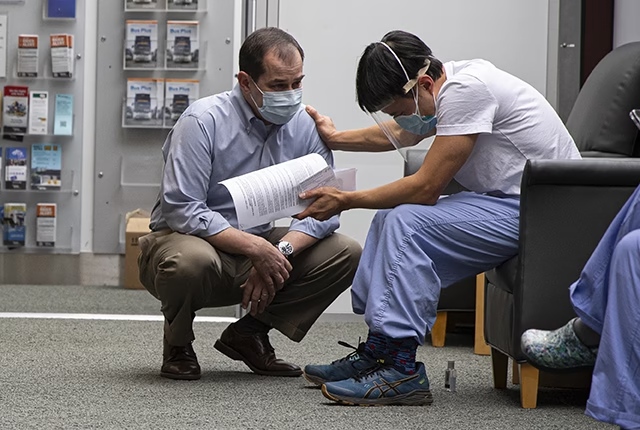Psilocybin-assisted psychotherapy significantly reduced depression among clinicians who provided front-line COVID-19 care in 2020 and 2021, according to a study by the University of Washington School of Medicine in Seattle.
These reductions were measurably greater than the placebo group.
Findings from this double-blind, randomized clinical trial were published in JAMA.
The study results suggest that guided psilocybin therapy is “dramatically different” than conventional psychotherapy, said Dr. Anthony Back, the trial’s lead investigator.
“For doctors and nurses who feel burned out or disillusioned or disconnected from the patient care they want to provide, this study shows that psilocybin therapy is safe and can help these clinicians work through those feelings and get better,” Back said.
The research team began recruiting amid the pandemic’s second wave in December 2021.
The participants had no prepandemic mental health diagnoses, but experienced moderate to severe symptoms of depression after the pandemic.
The study involved two preparation sessions, followed by a single session using a 25-mg dose of synthesized psilocybin, followed by three integration sessions.
The placebo group received 100-mg dose of niacin.
Two facilitators experienced in psychedelic-based counseling conducted the intervention sessions.
Participants reported significantly lessened depression symptoms 28 days following the session, compared with only slight drops for the placebo cohort.
“I think psilocybin gave them the opportunity to really see their own feelings and see their own situation in a way that they could have more compassion for themselves and more understanding about what had really happened,” Back said. “It was effective because it gave them a new perspective on what they were facing, in a way that they could take action.”

